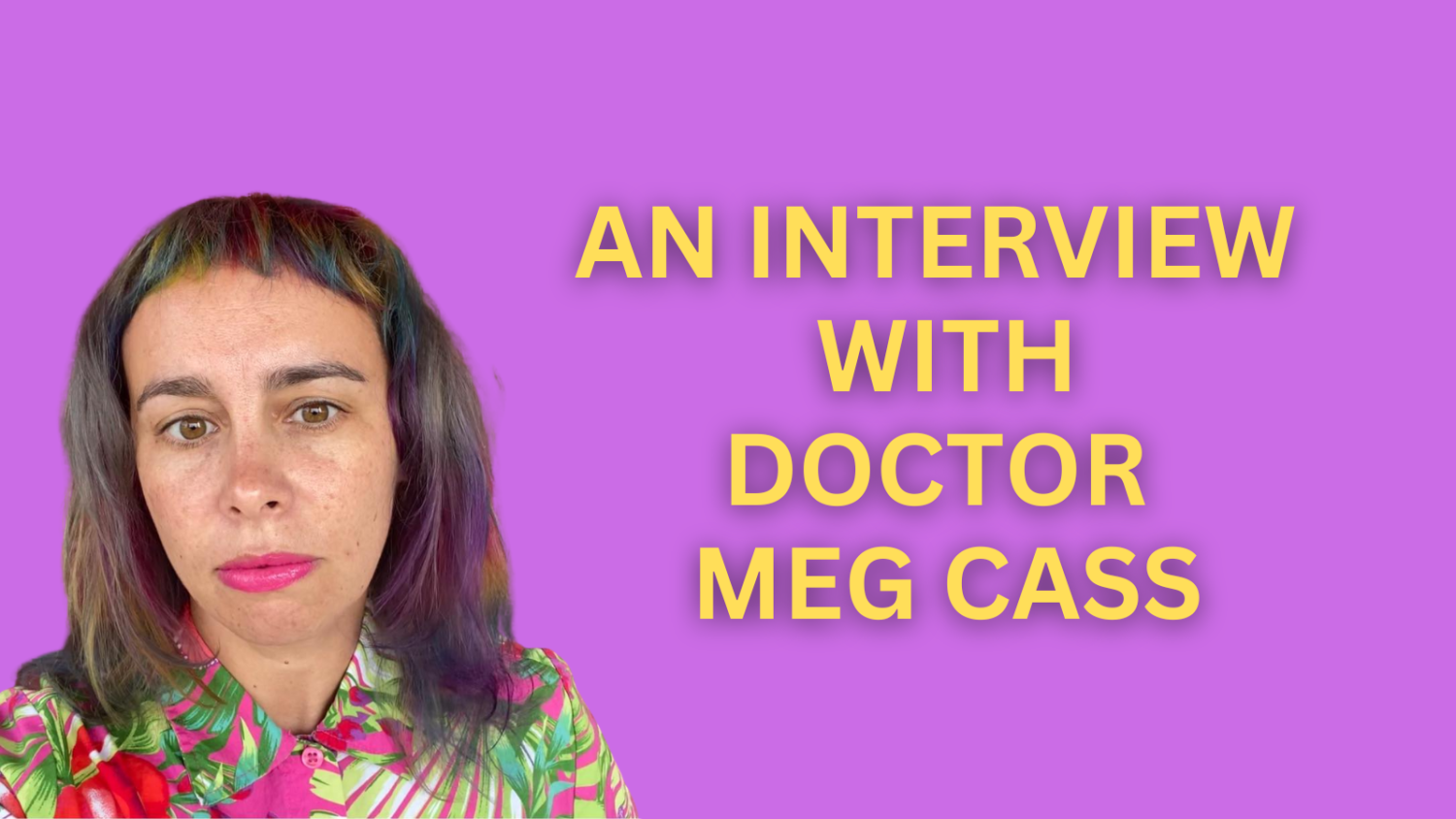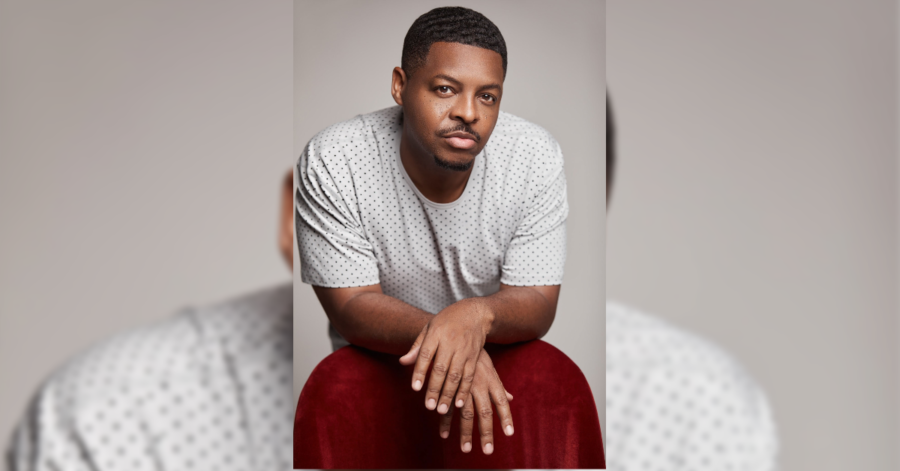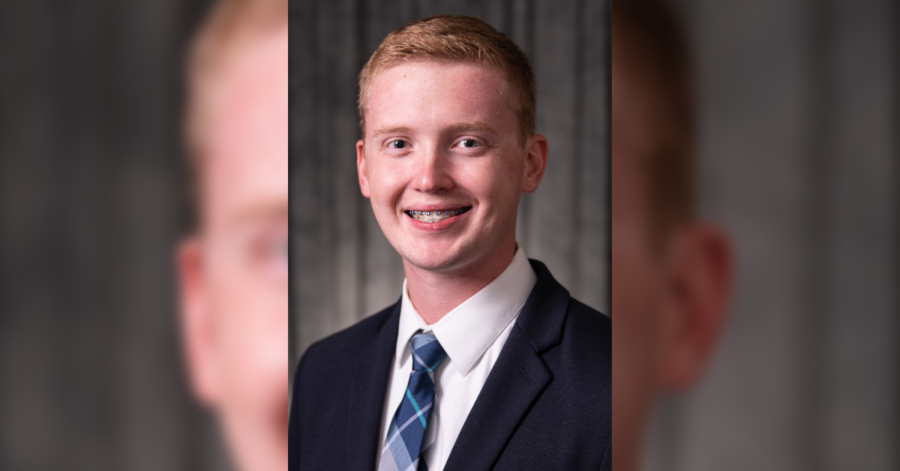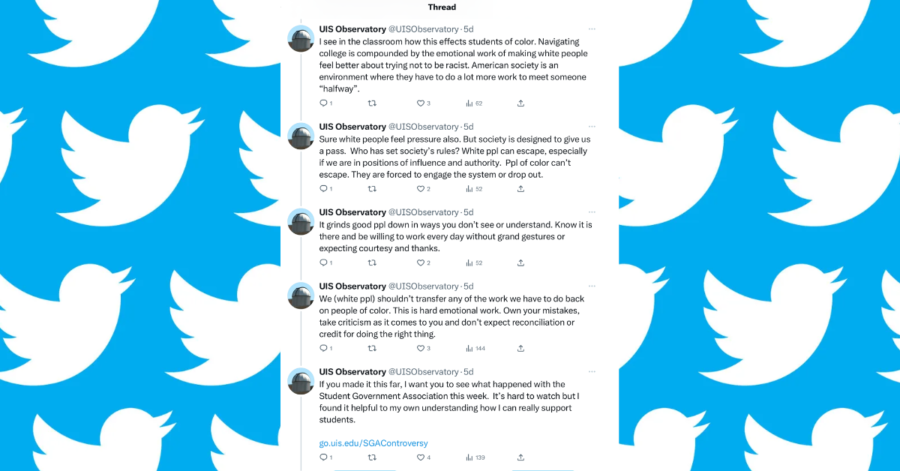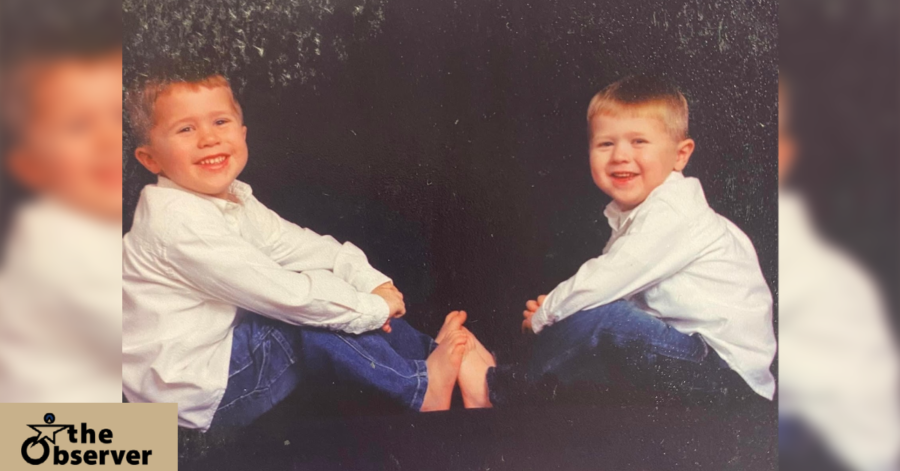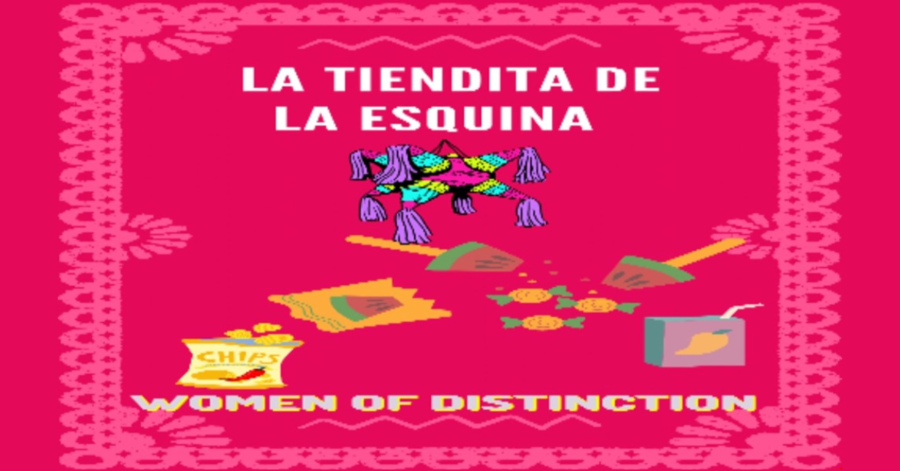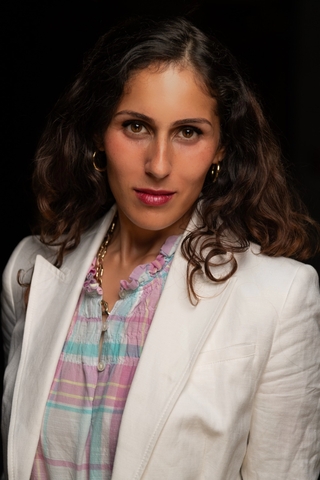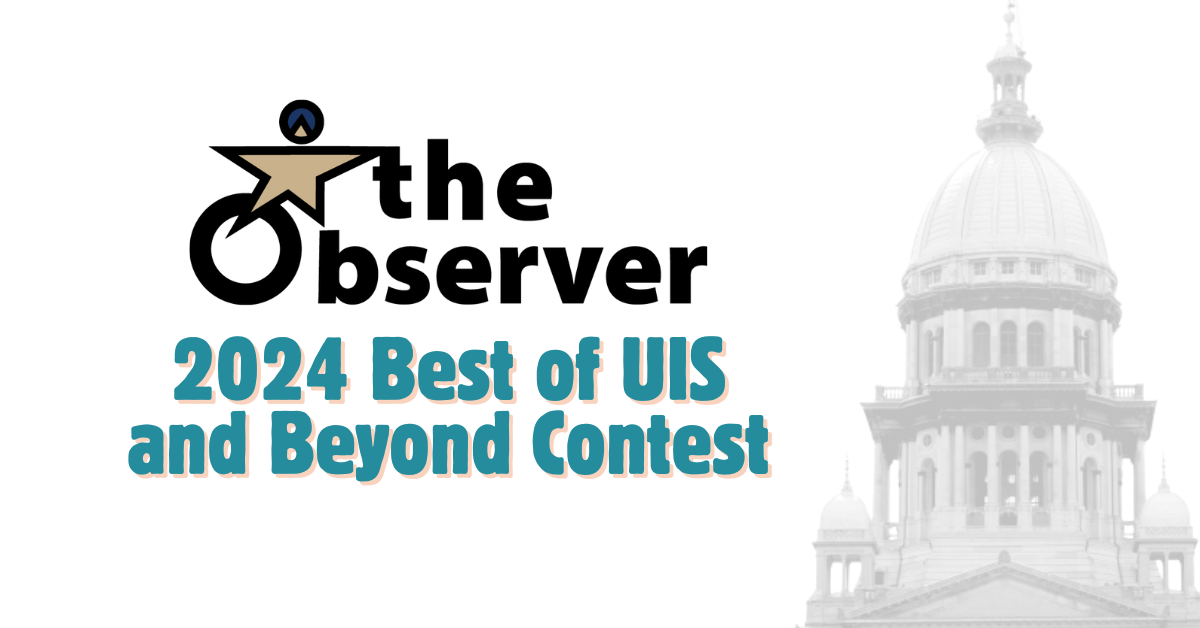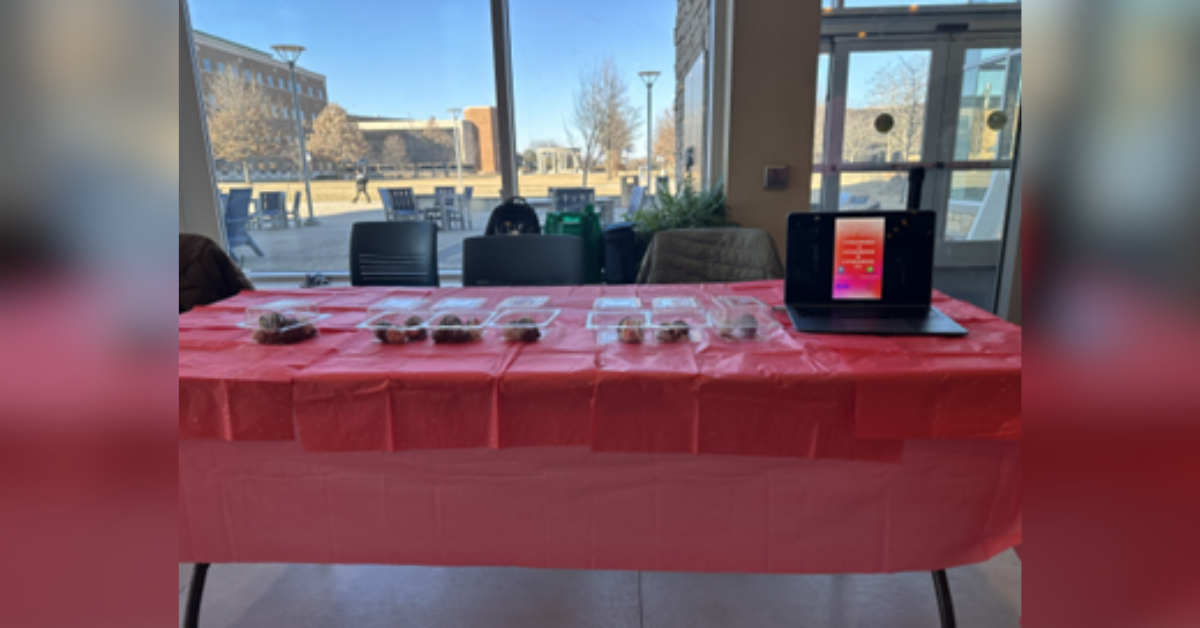The University of Illinois Springfield website is just like any other college website. It’s filled with tab after tab of student success tips, information on the cost of tuition, how to get in touch with an academic advisor, and so much more. But buried in these many tabs are profiles of the men, women, and non-binary people that make up the University’s teaching staff.
In short, the university’s website describes Doctor Meg Cass, an English and Modern Languages Professor, as someone who “…teaches courses in fiction writing, flash fiction, flash creative nonfiction, composition, independent publishing, and contemporary literature with an emphasis on Trans and Queer writers. Their first collection of short stories, ActivAmerica, was selected by Claire Vaye Watkins for the Katherine Anne Porter Prize and was published by the University of North Texas Press in 2017. Their work draws from fairy tales, science fiction, and horror to explore issues of gender, sexuality, place, and embodiment.”
I’ve had the pleasure of being taught by Doctor Cass in multiple classes throughout my time at UIS. Overall, they are one of the most understandable, kind, and decent human beings I have ever had the pleasure of being taught by. I recently emailed Dr. Cass and had a lovely discussion about their time at the university and their purpose in the world. Below is that very email chain.
CASEY HUTCHISON: IN YOUR CLASSES, YOU HAVE STUDENTS UPDATE THEIR PRONOUNS AND PROFILED PICTURES ON THE FIRST DAY OF CLASS. WHAT IS THE SIGNIFICANCE OF THIS? WHY IS IT IMPORTANT FOR PEOPLE TO BE SEEN?
DOCTOR MEG CASS: Having pronouns in your profile helps everyone remember them and can therefore help us all respect each other. It’s a seemingly small thing that can make a big difference. It can also be a reminder that there are more than two genders. Being misgendered is a painful experience for many nonbinary and Trans folks and can make it harder to participate in scholarly conversations. If we want to create learning environments where everyone can grow, we need to avoid doing harm as much as we can (at the bare minimum). I haven’t asked for profile pictures (at least, I don’t think so!), but if people want to add them, that’s great! Mostly, I want students to feel that they can find community in my classes and be treated as full human beings.
CASEY: YOUR QUEER THEORY COURSE WAS SO EYE-OPENING. WHAT DO YOU THINK IS THE IMPORTANCE OF THE COURSE IN A WORLD WHERE PEOPLE IN THE LGBTQIA+ COMMUNITY ARE BEING CHALLENGED ON THEIR FREEDOMS?
CASS: I’m so glad! Part of queer theory is studying how people within the LGBTQIA+ umbrella have historically had to fight to simply exist as themselves and build their lives. Reading novels like “Stone Butch Blues,”which was published in 1992 but involves iterations of the same transphobic, homophobic laws and violence we’re seeing today, reminds us that these problems aren’t new. Not only that but there have always been queer people who organized to fight back, joining with other social movements like the fight for racial justice and for labor rights. This generation will imagine its own methods for creating a more just world. We can also learn from what’s worked in the past.
CASEY: WHAT DOES IT MEAN TO YOU TO BE A NON-BINARY PROFESSOR THAT IS WELL-RESPECTED AND TEACHES COURSES THAT ARE IMPORTANT TO ONE’S FOUNDATION AT AN ACADEMIC INSTITUTION?
CASS: Thanks for this question! In a moment when large numbers of Queer and Trans books are being banned in schools and libraries (and especially books by Queer and Trans Black writers and writers of color), and with numerous laws targeting Trans children in schools, it’s important to me to be visible as a Queer, non-binary person who is part of this institution. We get to exist in these spaces. And Queer and Trans perspectives are important to understanding everything from the possibilities of the short story to how to run a small business ethically, to the ecological diversity of our world, and how it is affected by climate change. I hope that the new UIS administration will take the lead in making sure we have Queerer and more Trans Black faculty, Indigenous faculty, and faculty of color. These perspectives remain deeply underrepresented on our campus.
CASEY: IF YOU COULD GO BACK AND TELL YOUR YOUNG ADULT COLLEGE SELF SOMETHING, WHAT WOULD IT BE?
CASS: Firstly, it’s okay to not follow the low-rise jeans trend! Like, really!
Secondly, I would tell myself to move towards the classes that challenge the types of stories I grew up with. I’m from a primarily white suburb where Queerness, Transness, abolition, labor rights, alternatives to Capitalism, and other social issues and movements weren’t talked about much, if at all, in school or at home. College is a great place to learn what you don’t know about these issues and how they have affected people and communities in the real world. Take every class you can in Black and Indigenous studies, in Latinx studies, in Queer studies.
Lastly, don’t wait until Senior year to get a planner!
CASEY: WHAT DO YOU THINK IS THE MOST IMPORTANT PIECE OF ADVICE YOU CAN GIVE TO UIS STUDENTS THAT ARE ABOUT TO GRADUATE AFTER THIS SEMESTER?
CASS: Put time into your friendships. They’ll help you get through those difficult periods, which happen for most of us, when you’re unsure what you really care about or if you should even keep making art, or studying the orchid mantis, or working for your mom’s dental practice. They’ll help you remember your gifts and what you have to contribute to the world. They’ll be the people you can call at 2:00 A.M. when you’ve moved back home again after a break-up and are trying to write a really misguided novella in your parents’ basement (me at twenty-four).
Also, remember that there’s only so much you can do on your own. The idea that individuals can solve everything on their own through their own individual choices does a lot of harm. It erases the huge systems of oppression that affect every aspect of our lives and get in our way big time. When you’re dealing with a heavy problem, look to your friendships and your communities for support, guidance, and inspiration!

